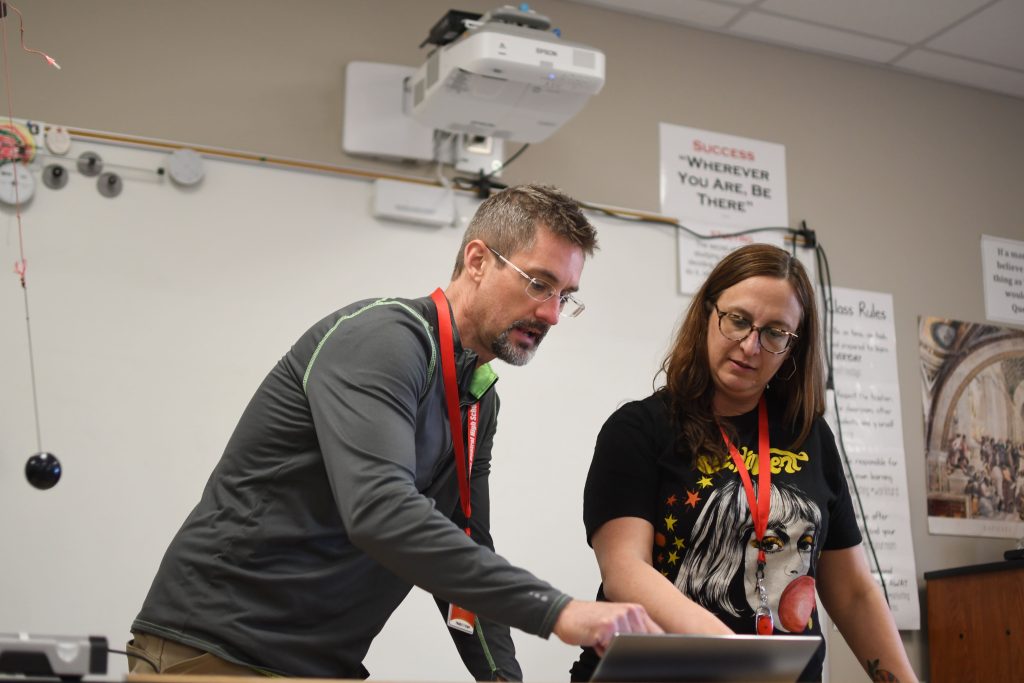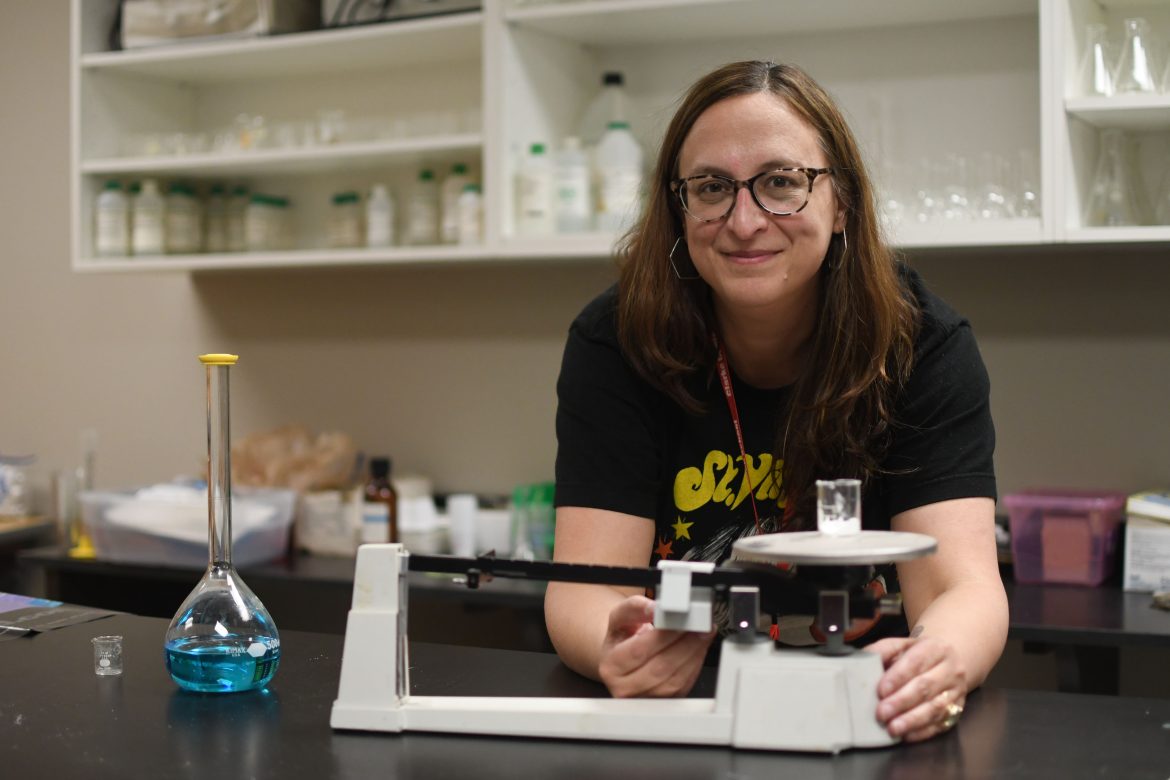Science Instructional Coach Katie Green conducts an experiment in Room 173 on March 30. With decades of experience as an educator, Green felt that the future of science education will revolve around hands-on teaching techniques. “When I was in junior and high school, we did a lot of memorizing and then regurgitating those answers on tests. So, a lot of the things that I learned, I forgot, because if I didn’t need to know it for the test, then I would forget it afterwards,” Green said. “(I believe) the direction that science education is going in (is) student centered learning, where it’s not the teacher lecturing and the students taking in the information, but instead it’s the students constructing their own knowledge while the teacher facilitates.” Photo by Aza Khan
Science Instructional Coach Dr. Katie Green speaks on her experience with archaeology, her time at CCHS and the future of science education.
News Staffer Mykolas Kumpis: Where did your passion for STEM come from?
Science Instructional Coach Katie Green: When I was a kid, I always liked to play outside. I was always collecting rocks and climbing trees and things like that, so I guess it wasn’t surprising that when I got to be an anthropology major in college, I went for one of the more scientific subfields, (which was) archaeology. I took an archaeology class with a woman who ended up being my favorite professor– every time I go back anywhere near that university, I go see her. She’s one of the reasons why I loved the class so much, (and archaeology) kind of lent itself to my nature.
MK: What kind of experience did you gain while in the field of archaeology?
KG: I did a master’s in anthropology from ‘95 to ‘97 at (the) University of Oregon, and there I studied Pacific island archaeology. (I studied) Easter Island, and I looked at faunal remains from two sites there. I did more scientific work analyzing these bones, and then I got the opportunity to go to Easter Island and work on a dig right after I graduated, which was awesome. (I got to) see the caves that I had worked on the bones from, which was kind of crazy. I (then) went on another dig in the Canary Islands, where we excavated at a pyramid site.

Science Instructional Coach Katie Green assists Science department teacher Scott Swain in Room 183 on March 30. Despite filling different roles throughout her life, ultimately, Green felt her calling was to teach. “(While working as an archaeologist), I taught at a community college (and) substitute taught. I realized that I did like to teach, Green said. “I knew (that) all along, but I was trying to pretend like I was going to be something other than a teacher because my parents (already were). I guess I thought I was going to do something different, when really, it’s just who I am as a person.” Photo by Aza Khan
MK: How did you get started as an educator?
KG: (While working as an archaeologist), I taught at a community college (and) substitute taught. I realized that I did like to teach. I knew (that) all along, but I was trying to pretend like I was going to be something other than a teacher because my parents (already were). I guess I thought I was going to do something different, when really, it’s just who I am as a person. So, I went back to the University of Oregon and got a teaching certificate in middle and high school science.
MK: How did you get started at Clarke Central High School?
KG: I decided to do my PhD in science education, because I wanted to go further with education, but didn’t want to be a superintendent (or) a principal. Then, I moved down to Athens for a postdoc research position in the genetics department at UGA. I was working with a geneticist and other female scientists (and) educational researchers, but I still (felt) there was something lacking. I didn’t even know about this instructional coordinator position when I started that PhD program, (but) I heard about it and applied. It really has been an excellent fit for me because I get to use my love of science and my teaching background. (More importantly), I get to interact with teachers and students and that’s where I (always) really wanted to be: somewhere that was helpful, instead of just doing research that somebody may or may not ever read.
MK: What sort of teaching style have you preferred during your time as an educator?
KG: When I was in junior and high school, we did a lot of memorizing and then regurgitating those answers on tests. So, a lot of the things that I learned, I forgot, because if I didn’t need to know it for the test, then I would forget it afterwards. (However), when you want to be an archaeologist, you have to go to a field school for eight weeks. I had to learn how to dig and how to do surveys and how to tell what soil was what color and do all those things by hand. I’m still surprised sometimes at how much I remember from Easter Island 25 years ago. (I believe) that’s the direction that science education is going in; student-centered learning, where it’s not the teacher lecturing and the students taking in the information, but instead it’s the students constructing their own knowledge while the teacher facilitates. It’s something that has been helpful to me in the past and I totally believe in it.
MK: What role do you hope to fill in the world of science education, at CCHS or beyond?
KG: I’m still doing little bits of research and presenting that research at conferences, so I hope to continue being able to present research about how students best learn and how teachers best teach. But I do feel like I have this boots-on-the-ground job here at Clarke Central where I can be a little more directly influential about handing down information to teachers and (providing) resources that help them.
